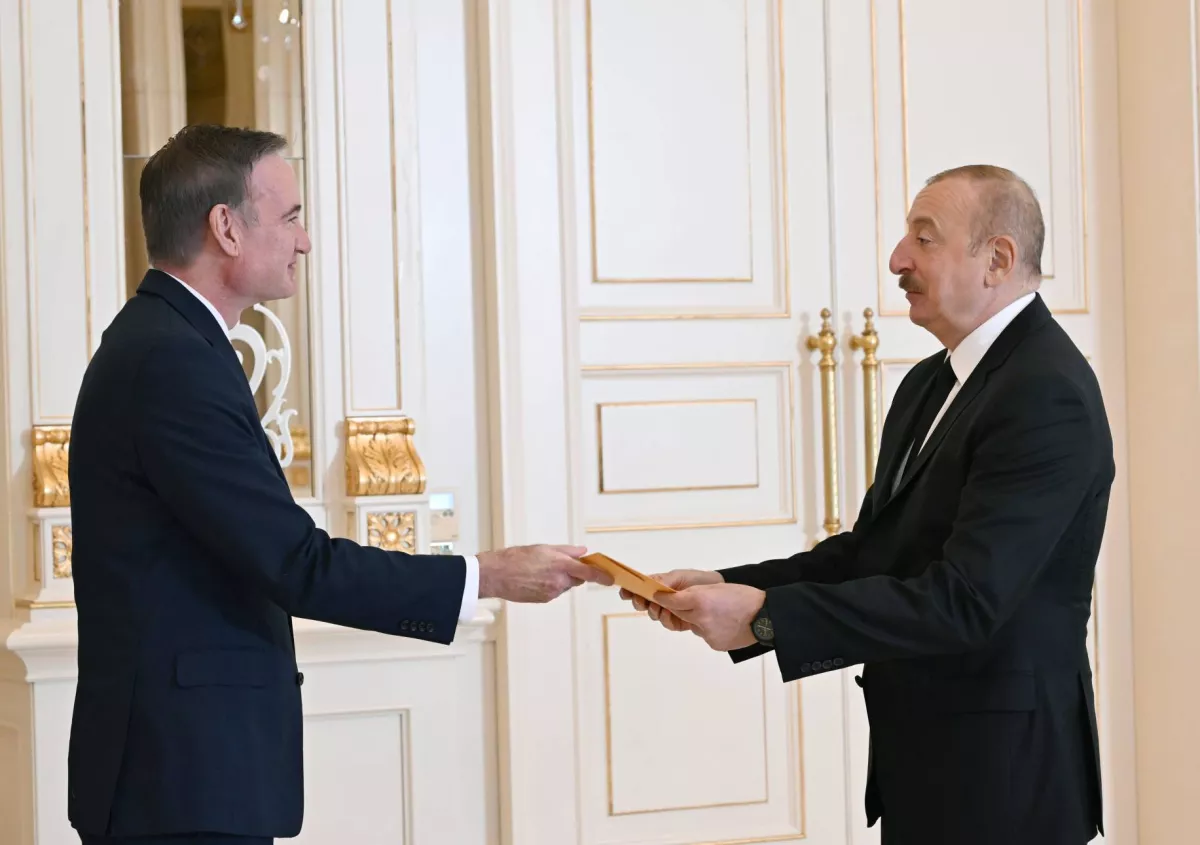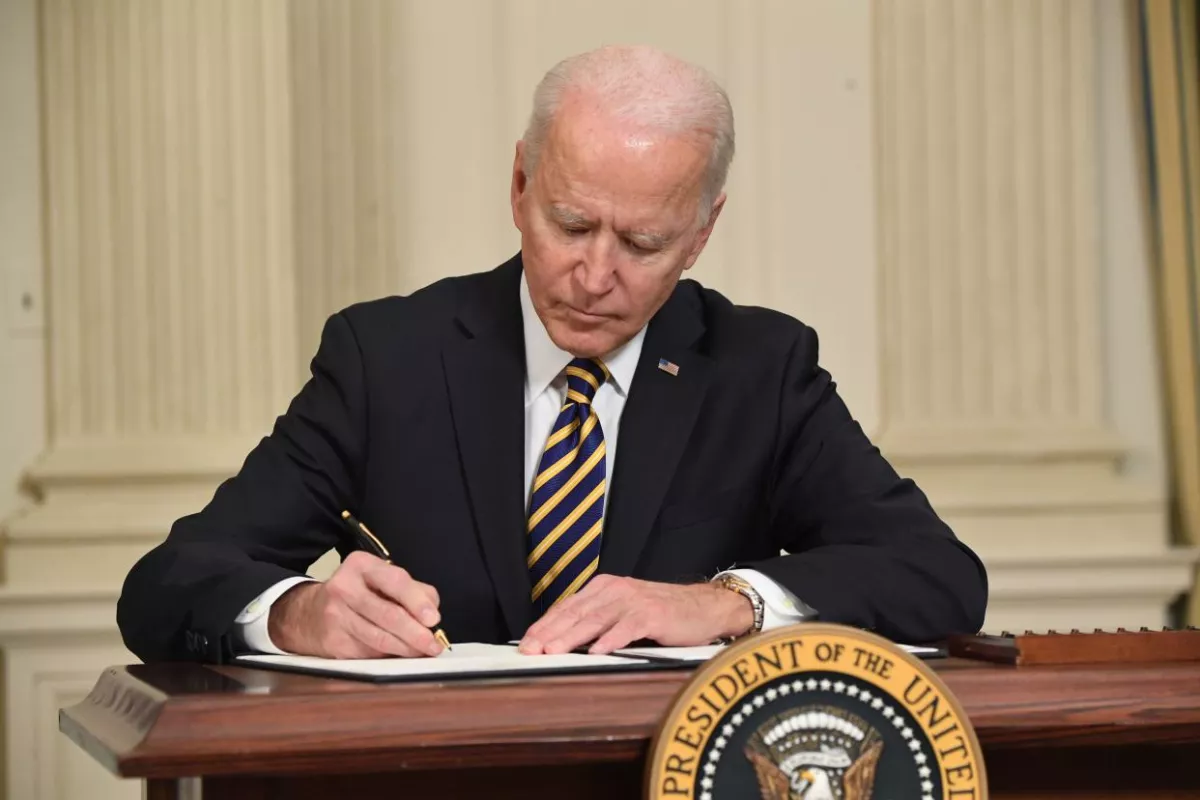Where is the US president rushing to? Caliber.Az analyzes Biden’s letter to Aliyev
On October 21, Azerbaijani President Ilham Aliyev met with Michael Carpenter, the US President's Assistant for Europe. Carpenter delivered a letter from US President Joe Biden to Aliyev and confirmed Washington's support for the swift signing of a peace treaty between Armenia and Azerbaijan.
Biden's message is certainly noteworthy, making it essential to examine its content closely. Despite the seemingly positive tone of the letter, there are indications of a potential manipulation regarding the peace process between Baku and Yerevan. A detailed analysis follows.
"I am pleased to see that your nation and Armenia have made steady progress toward finalizing a peace agreement that would normalize relations between your two countries. I want to assure you that the United States stands ready to support a durable and dignified peace between Azerbaijan and Armenia that would finally put to rest centuries of conflict," the American president's address begins on a solemn and uplifting note.

At first glance, these phrases seem innocuous; however, certain details reveal a less than favourable narrative not only toward Azerbaijan but also regarding the emerging peace.
Firstly, the Americans have used the term "dignified peace" on multiple occasions. In the context of previous uses, it can be inferred that "dignified," in the American understanding, suggests a peace that is advantageous to the Armenians. Furthermore, describing the conflict as "centuries of conflict" is quite awkward. One could barely classify it as a century-long conflict, as the first armed clashes between Armenians and Azerbaijanis in Karabakh and Western Azerbaijan occurred in the early 20th century. Importantly, the cause-and-effect relationships of this conflict are clear—it emerged solely as a result of the expansionist ideology propagated by Armenians. By labelling the conflict as centuries-old, the American president seems to be attributing an undue level of complexity to it that is simply not present.
Overall, these details do not inspire confidence in the impartiality of the American side, especially in light of the efforts by Armenians and their backers to create an artificial narrative regarding the "rights of Armenians in Nagorno-Karabakh."
"A peace agreement would not only ensure Azerbaijan's sovereignty and territorial integrity, it would transform the entire region–paving the way for increased trade, investment, and connectivity between Europe and Central Asia," Biden continued.

Here, one cannot argue against the statement, and it is even commendable that the American president explicitly mentions "Azerbaijan's sovereignty and territorial integrity." However, the intuition of the Azerbaijani reader, shaped by bitter experiences, immediately anticipates some underlying trickery. And, of course, it does not take long to reveal itself.
"As the world's attention turns to Baku for COP29, you have a unique opportunity to demonstrate your commitment to peace in front of a global audience. As you know, finalizing the remaining articles of the peace agreement will require creativity and compromise on all sides. But I am confident that you will continue to meet this moment, and I encourage you to finalize an agreement this year," the occupant of the White House transitions to the main point.

This is perhaps the most substantive and manipulative part of his message. Unfortunately, its significance lies precisely in its manipulation. The White House attempts to present the situation as if Azerbaijan received the approval of the international community, particularly the US, to host the conference in exchange for a commitment to swiftly sign a peace agreement with Armenia. In reality, it is well known that Armenia's agreement to hold COP29 in Baku was made possible through bilateral, direct contacts between Azerbaijan and Armenia, without the involvement of the US or any other parties. During these discussions, it is worth noting that Azerbaijan supported Armenia's candidacy from the Eastern European group for membership in the COP Bureau as a goodwill gesture.
Next, the question arises: what kind of creative approach and compromise is the American leader advocating? It is evident that this implies turning a blind eye to the territorial claims against Azerbaijan enshrined in the Armenian constitution, which have been cited by Baku as the main obstacle to peace.
Additionally, what is the urgency? Why, four years after the 44-day war and a year after Azerbaijan fully restored its sovereignty, has Washington suddenly become concerned with achieving peace? There is little record of American leaders urging Armenia to demonstrate a "creative approach" during the lengthy thirty years of occupation of Azerbaijani territories.
" I want you to know that I am committed to supporting this cause. My Administration is prepared to take bold initiatives that would help pave the way for peace. I have asked my Senior Director for Europe, Michael Carpenter, to brief you on some of the steps we would be willing to take and also to get your feedback on discussions with Armenia," Biden further stated.
It is certainly intriguing to consider what these "bold initiatives" might entail. Rather than being dismissive, it is important to refrain from criticizing what has not yet been seen—these initiatives may, in contrast to the tone of the letter, genuinely aim to steer Armenia away from the folly of revanchism. In this regard, it remains to be seen what unfolds.
"I hope you will take advantage of this opportunity to set a new course for the region, one based on shared prosperity and the pursuit of common good," Biden concluded his message.

Once again, there is a clear attempt at manipulation—placing the burden of a "new course" for the region and "shared prosperity" on Baku. One might be tempted to respond to the Americans in their characteristic straightforward manner: "Hold on a minute, folks. We are not obligated to anyone." Azerbaijan is under no moral obligation to conclude any agreement with Armenia this year. However, it seems that Armenia is desperately in need of a peace agreement without any commitments.
In Yerevan, there are expectations of reaping the benefits of Armenia's integration into regional projects, including normalization with Türkiye, while doing so at minimal cost—avoiding backlash from the public by refraining from abandoning the fundamental pillars of Armenian identity, such as the expansion of "living space."
The democratic administration in Washington caters to Yerevan's desire for a peace agreement. This is partly driven by US geopolitical interests, which do not include a strong, sovereign Azerbaijan. However, more significantly, it is motivated by electoral interests—by assisting Armenia in signing a peace deal "at minimal cost," the Democrats secure votes from the Armenian diaspora.
To avoid being too overt about this issue, Biden mentioned a deadline of "by the end of the year," rather than by the start of COP29, which almost coincides with the election date of November 5. Earlier, State Department spokesperson Matthew Miller stated that the United States has never linked a potential peace agreement between Azerbaijan and Armenia to COP29. However, all indications suggest that the White House has pinned its hopes on this date. It appears they expect Baku to at least express its readiness to sign a specific document by the desired date of November 5.
It is worth reiterating that Baku will continue to prioritize its national interests. Azerbaijan has already demonstrated its capacity to resist ultimatums and pressure from major powers. Nonetheless, the country remains open to dialogue and willing to explore viable options for cooperation and progress toward peace, as long as these options align with its national interests. The success of Special Assistant Carpenter's mission will hinge on whether the proposals he presents from the United States genuinely respect Azerbaijan's sovereignty, not merely in rhetoric but in concrete actions.








